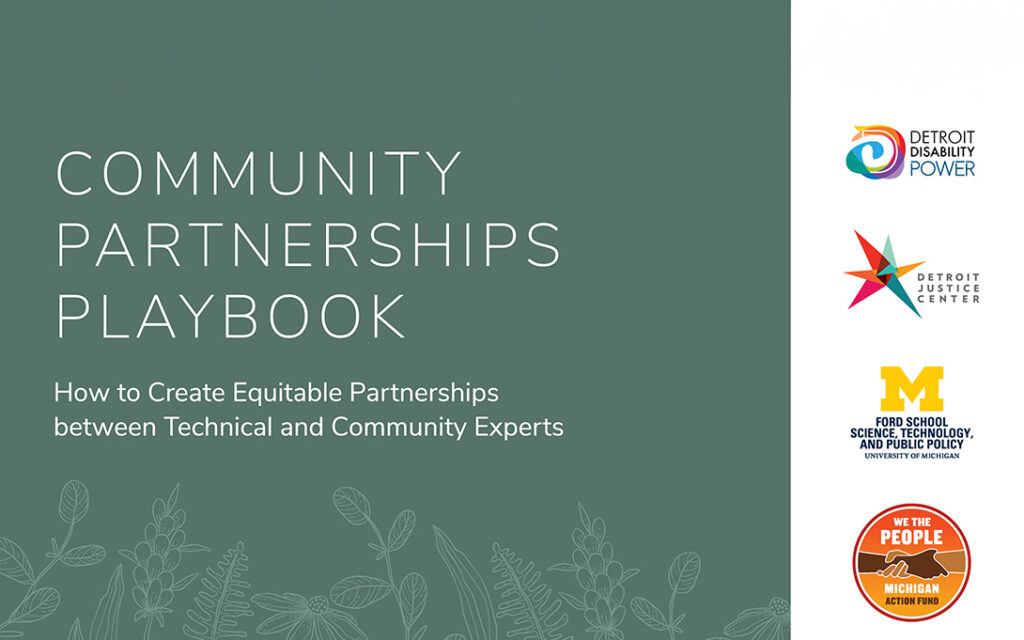The Community Partnership Playbook’s purpose is to guide researchers while supporting and lending authority to community organizations as they advocate for partnerships that will benefit their constituencies.
-
January 15, 2024
Ross School to boost Detroit Neighborhood Entrepreneurs Project
The Detroit Neighborhood Entrepreneurs Project moves to the Ross School, but has always been a collaborative effort involving faculty from Ford, Ross and other schools as well as students from across campus. This includes those from the College of Engineering, Stamps School of Art & Design, Law School and School of Information.
-
July 25, 2023
Q&A: Alum José Lemus shares his experience working with the city of Detroit
José Lemus, who earned his Master’s of Public Policy from the University of Michigan Ford School in 2022, works as a senior advisor for the Jobs and Economy Team in the city of Detroit’s mayor’s office. He is focused on public-private partnerships to support the city’s infrastructure and economic development objectives.
-
June 23, 2023
Engage Detroit Workshops showcase brings community and U-M together
The Engage Detroit Workshops grant program will support eight teams of U-M faculty, staff, students, and community partners in organizing workshops that will strengthen partnerships between the University of Michigan and Detroit. The 2023 round of funding is supporting projects through August 2024. The projects range from one that helps parents become more involved in their children’s education to another that explores the range of fatherhood experiences.
-
May 16, 2023
U-M expert: Implications of restrictive abortion policies on maternal health, social welfare
“Restrictive abortion policies will further exacerbate health and economic inequality in the U.S. unless public safety net programs and social welfare systems are adequately resourced and reformed to meet the increase in demand from significantly fewer abortions.”
~ Paula Lantz, a health policy professor at U-M’s Ford School of Public Policy and professor of health management and policy at the School of Public Health.
-
September 19, 2022
Q&A: DeAndré Calvert continues family legacy with work uniting students and community partners
“The pandemic shined a light on the fact that digital access is both a real requirement for modern living, and a cause of inequity for those who don’t have it. With so many aspects of our lives taking place remotely, that digital divide seemed to get bigger.”
~ DeAndré Calvert
-
June 8, 2022
Race and racism at U-M is Inclusive History Project’s initial focus
U-M joins a number of other institutions, including Brown, Emory, Georgetown, Harvard and Johns Hopkins universities, as institutions working to lead their campus communities toward a more universally shared understanding of their historical past.
-
May 18, 2022
From industrial wasteland to urban lure, Detroit’s Riverwalk sees 3 million visitors a year
The conservancy was started in 2003 with the leadership of U-M alums Faye Alexander Nelson, former president and CEO of the conservancy, and Matt Cullen, the current chairman of the board.
-
March 25, 2022
Youth Policy Lab study calls for mental health training and support of Detroit school staff
Staff indicated that they wanted to learn about the best practices for supporting students affected by depression, anxiety, trauma, or PTSD. But, only 38% of staff reported knowledge of a protocol to screen or identify students in need of mental health services.


